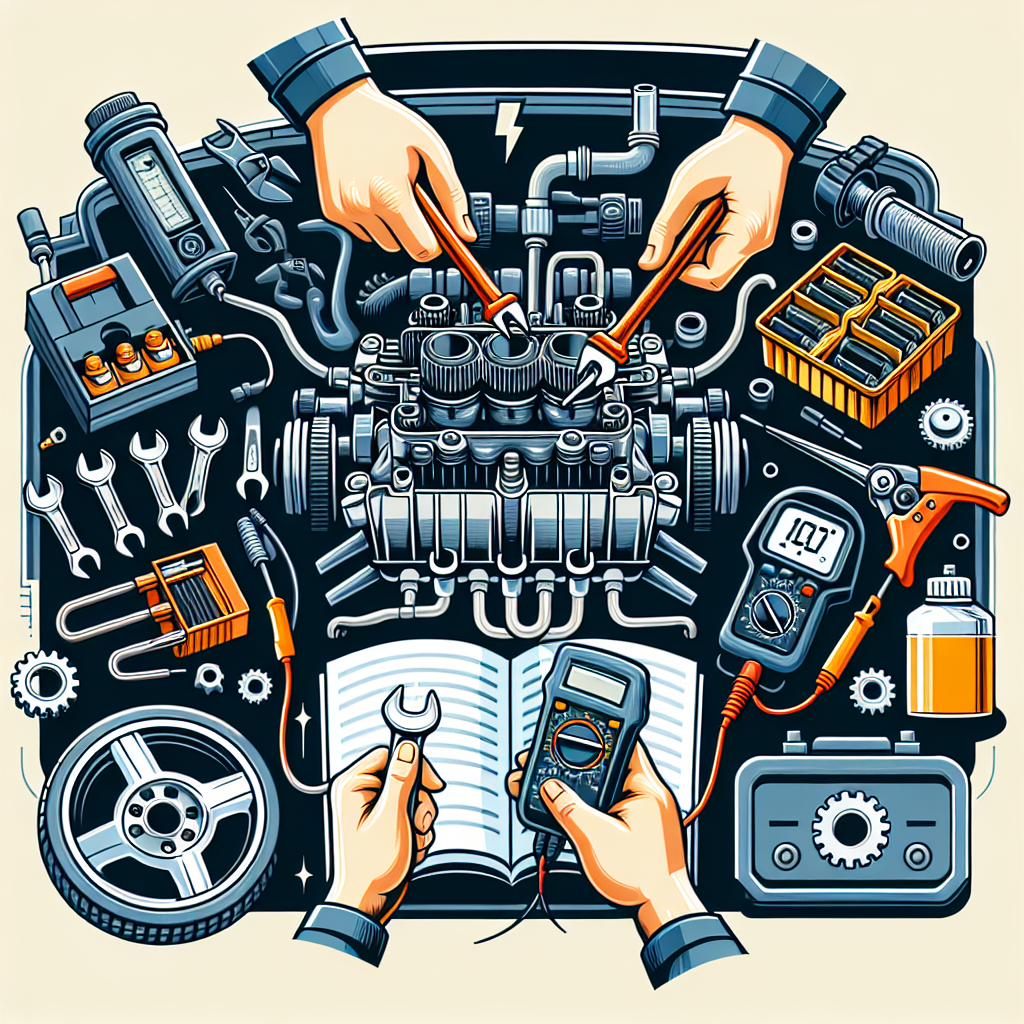Maintaining your vehicle’s ignition coil is essential for ensuring a smooth and efficient ride. The ignition coil is a critical component of your vehicle’s ignition system, responsible for converting the battery’s low voltage into the high voltage needed to ignite the fuel. Proper maintenance of the ignition coil can improve your vehicle’s performance, fuel efficiency, and overall longevity. Here are some expert tips to help you keep your ignition coil in peak condition.
1. Regular Inspection:
Regular inspections are vital to identify any issues with the ignition coil before they escalate. Look for signs of wear and tear, corrosion, or any physical damage. If you notice any cracks or damages, it may be time to replace the ignition coil.
2. Keep it Clean:
Dirt and grime can accumulate on the ignition coil, potentially affecting its performance. Use a clean cloth and a gentle cleaner to wipe off any dirt. Be cautious not to use water, as it could cause internal damage or rust.
3. Check for Loose Connections:
Loose connections can cause misfires and other ignition problems. Ensure that all electrical connections to and from the ignition coil are secure. Tighten any loose connections to maintain proper electrical current flow.
4. Monitor Engine Performance:
Your engine’s performance is a good indicator of the health of your ignition coil. If you notice rough idling, stalling, or decreased acceleration, it may be due to a failing ignition coil. Address these issues early to prevent further damage.
5. Avoid Overheating:
Ignition coils can overheat due to prolonged use or insufficient cooling. Maintain your vehicle’s cooling system, ensuring there is enough coolant and that fans and radiators are working effectively. This can help prevent the ignition coil from overheating.
6. Replace Spark Plugs Timely:
Spark plugs and ignition coils work hand-in-hand to ignite the engine. Worn-out spark plugs can overstress the ignition coil, causing it to fail prematurely. Check and replace spark plugs as recommended by your vehicle manufacturer.
7. Use High-Quality Parts:
Investing in high-quality ignition coils can make a significant difference in the performance and longevity of your vehicle. Quality parts are built to withstand harsh conditions and can provide more reliable performance compared to cheaper alternatives.
8. Professional Diagnostics:
If you are unsure about the condition of your ignition coil, consider seeking professional help. Technicians can perform diagnostic tests, such as checking the coil’s resistance and voltage output, to ensure it is functioning correctly.
Maintaining your vehicle’s ignition coil requires a combination of regular inspections, timely replacements, and quality parts. By following these tips, you can help ensure your vehicle runs smoothly and efficiently.
For more tips on car maintenance and troubleshooting, you can visit trusted automotive resources like AAA’s Car Repair Guide here which provides valuable insights into common car issues you should not ignore.

